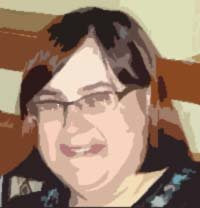As a librarian I tend to question a lot of things that most people take for granted. For example, Internet Tags. The Internet is a big place, a big un-cataloged place. The kinds of cataloging and classification I am talking about deals with finding information. In the library we use the Dewey Decimal System. Have been using it for over a century now. Before the Dewey Decimal System came into being books were located behind the librarian’s desk in closed stacks and if you wanted a book you had to ask. The Internet is kind of like that right now. It is a big closed stack of information. Oh, once in a while you can ask Google for a site to help you locate the information you need, but then you have to take the sites they give you, just like you had to take the books that librarian gave you years ago. You have to accept what Google decides is a good source ranked by their standards, very similar to using those old closed stacks. Mostly you get the most popular sites, not the sights with the most accurate information and it is very difficult for students in elementary and middle school to judge what sites are accurate, that is up to us school librarians to teach them, but I digress.
By and large the Internet does not have a system that helps users find relevant information in a quick systematic way. Now enter Tags, the kinds of tags that are used on Web 2.0 websites such as Del.icio.us and FURL, Flickr and Wink. There are other places out there on the web with Tags to help find things from photographs to blogs. But the tags themselves are just words made up by people like you and me, they are not specialists in the field of finding information, let alone finding it quickly. There is no librarian out there cataloging the Internet. And this is not coming from me, according to Wikipedia:
“A tag is a (relevant) keyword or term associated with or assigned to a piece of information
(like picture, article, or video clip), thus describing the item and enabling keyword-based
classification of information it is applied to.
Tags are usually chosen informally and personally by the author/creator of the item —
i.e. not usually as part of some formally defined classification scheme.”
And there is where my problem with tags lies. How the heck do I know what the author/creator used as a keyword for his or her picture, article, video clip, or blog? Keywords are great but what if the author chose automobile and not car as the keyword for his picture of his Chevy Nova that I want to buy? If I search car, I will never get to that Nova of my dreams. Should there be a standardization of tags? I think so. I am not only in favor of a classification system of keyword tags; I think they should be linked to the Library of Congress Subject Authorities and to the Dewey Classification System. The Internet is here to stay, isn’t it about time we make it a little easier to navigate?
I actually was just introduced to a new article on Tagging on LM_Net, however I have not had a chance to read it yet and will blog again once I do.
Subscribe to:
Post Comments (Atom)



No comments:
Post a Comment